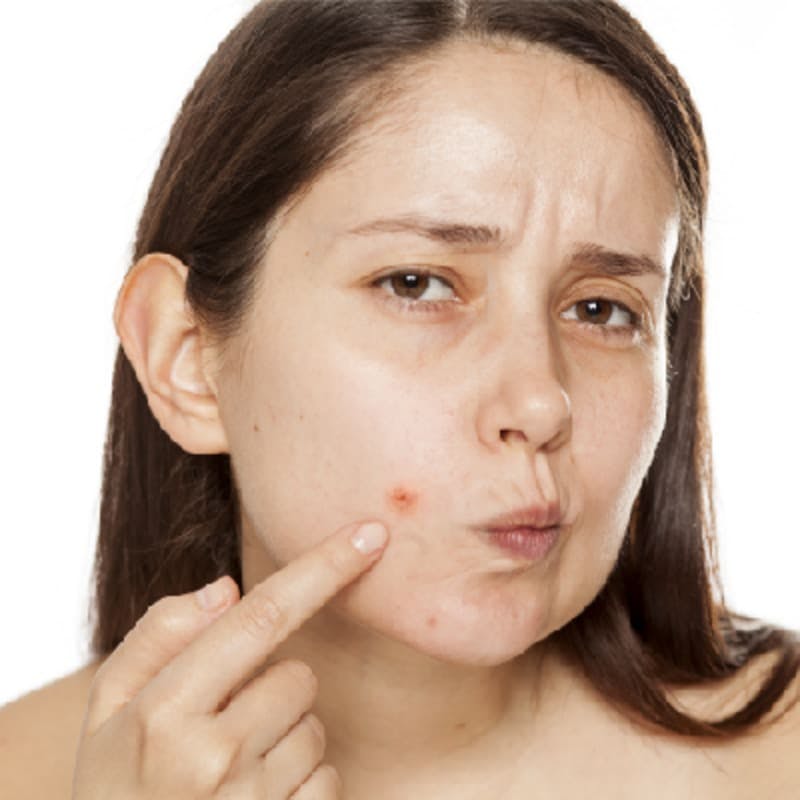As a complication of acne, acne scars can occasionally develop. The three main types of acne scarring are ice pick scars, rolling scars and boxcar scars. These acne scars can lead to emotional distress.
Written by Medical Professional
Can be Treated Online
Appointments Available Today
Written by
Dr Farah Gilani
Doctor
Reviewed by
Dr Faiza Khalid
Doctor
Last Updated:
Next Review: Sep 1, 2025
Guide contents
01Acne scars: what you need to know
Articles related to Acne Scars
Acne scars: what you need to know
As a complication of acne, acne scars can occasionally develop. The three main types of acne scarring are ice pick scars, rolling scars and boxcar scars. These acne scars can lead to emotional distress.
Any acne spot can cause scarring, but it is most frequent when nodules and cysts burst and damage the skin. Scarring can also occur if spots are picked at or popped. If you want to find out more about acne scars, we can help with:
What are acne scars? And can I remove acne scars?
This chapter covers
- What causes acne scars?
- The types of acne scars
- How to get rid of acne scars
- Coping with acne scars
What causes acne scars?
Acne scars are most often caused by severe acne such as nodules or cysts. When these spots burst they damage the nearby skin, causing scarring. Acne scars can also be caused by picking or squeezing your spots, so it is important to avoid this.
The types of acne scars
There are three main types of acne scar:
- Ice pick scars. These are small, deep holes in the surface of your skin that appear like the skin has been punctured by a sharp instrument. Ice pick scars are caused when an infection from a cyst works its way to the surface of the skin.
- Boxcar scars. These are broad depressions with sharply defined edges. Boxcar scars form when too little collagen is produced during wound healing.
- Rolling scars. These have smooth edges that give the skin an uneven or rolling appearance. They are caused by bands of scar tissue that form under the skin.
How to get rid of acne scars
Unfortunately, there is no easy treatment for acne scar removal. Under the NHS, the options are classed as cosmetic surgery and so are usually unavailable. The types of treatment available to reduce acne scars are:
- Dermabrasion. This involves removing the top layer of skin, either using lasers or a specially made wire brush.
- Laser treatments. These treatments can either remove a small patch of skin to encourage new skin, or stimulate growth of new collagen to repair some of the damage.
- Punch techniques. If you have ice pick or boxcar scars, punch techniques surgically remove the scars and then seal, elevate or ‘plug’ the wound.
- Subcision. If you have rolling scars, subcision involves removing the upper layer of skin from the underlying scar tissue. This helps form new connective tissue, pushing up the scar to be level with the surface of the skin.
Coping with acne scars
While many people want to instantly banish acne scars, learning to cope with them is equally important. Acne scars can often cause anxiety, stress and depression. If you find you have little interest in seeing your friends or are anxious to leave home, it is important to speak to your GP.
So, how does it work?
Book in seconds
Select a day and time that suits you — then see a doctor on your phone or at a pharmacy.
Speak to a doctor
Have a video consultation and be examined by one of our expert doctors.
Get back to feeling better
Whether it’s a diagnosis, personalised treatment plan or prescription — our doctors can help.
